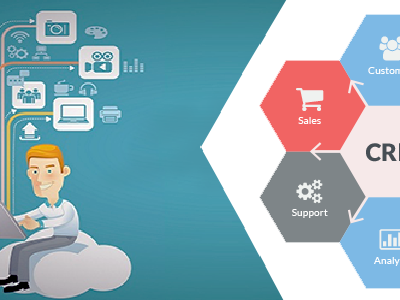
Strategy for implementing CRM in Public Sector
From a CRM practitioner’s perspective, the major issue coming out of a reading of that report is the risk of failed CRM implementations. The report recognises the significance of CRM for the e-government space but has a very different view of the scope of CRM compared with private sector experience. It identifies CRM as a technology, but seems to exclude many of the technologies that we would consider part and parcel of CRM – for example the multi-channel management technologies, and the data mining technologies.
Sign up to get FREE CRM Trial
It does recognise that CRM is wider than a technology, requiring organisational change for effective usage, but in our view it makes a serious error in relying on strategic partnerships, likely to be with technology partners, to provide the strategic expertise to help local authorities to develop the strategy for implementing CRM, and the experience to manage the organisational changes required.
This seems to me likely to lead to serious difficulties with CRM implementations in the CRM public sector, and I want to focus on what I perceive as the potential problem areas in this editorial.
Let me start by saying that I believe that the major organisations likely to become strategic partners of local organisations in the implementation of e-gov in the crm public sector have an important role to play in delivering that strategy. There is no doubt that their undoubted skills in systems integration and the technical delivery of CRM will be required by many local authorities to deliver their e-gov strategies.
So who can develop that strategy? Well, fundamentally that responsibility rests with the local authority itself and it is very high-risk to delegate it elsewhere. There are two key issues in being able to develop that strategy. Firstly to ensure that the local authority has sufficient understanding of CRM, and secondly to have a clear vision of what it wants to achieve strategically through the implementation of e-gov. Essentially, that understanding has to be built within the local authority, and if it should be tested with third parties, the most important third party to involve is the citizens themselves. In a number of editorials we’ve outlined a methodology for this involvement of the citizen / customer in the development of the business strategy
- Develop an actionable vision of where you want to get to.
- Develop a programme of the projects you need to undertake which currently limit the delivery of that vision, prioritised by value, cost and flexibility. (See Delivering ROI from CRM through incremental implementation and Back to the future: a strategic planning methodology to successfully adopt CRM and sustainability for a discussion on how to develop this list.).
- Implement the organisational change, the technology, and the detailed business process changes required for each project.
- Measure the successes and failures of each completed project.




